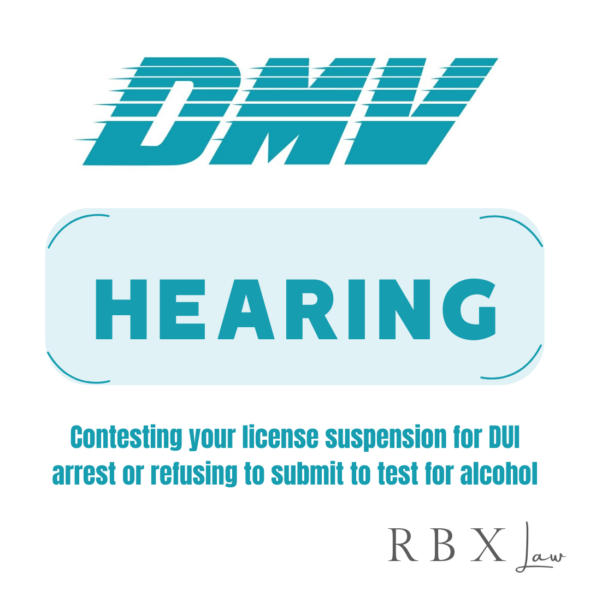Overview
You are entitled to a DMV hearing to contest the suspension of your license by the DMV. However, if you fail to request a hearing, the DMV will suspend your license. The DMV has the power to suspend your license if you refused to submit to a blood, breath or urine test. The DMV also has the power to suspend your license if law enforcement arrests you for driving under the influence and your blood alcohol is over the legal limit.
Step 1: Officer Seizes License
When you are arrested for DUI, law enforcement will take your driver’s license and give you a temporary paper license that is good for 30 days. The temporary license has information on how to contact the DMV to prevent your license from being suspended.
The officer also sends notice of the arrest to the DMV on form DS 367. Once the DMV receives that form, they will take steps to suspend your license unless you contact them to contest the suspension within 10 days.
Step 2: Scheduling the DMV hearing
You must contact the DMV and request a hearing within 10 days of your DUI arrest or the DMV will suspend your license. You can contact them by phone by calling (916) 657-0214 or find the number for your local Driver Safety Office and contact them directly.
Step 3: Prepare for Hearing
You can request documents from law enforcement using a DMV subpoena. If you intend to use documents in your case, you need to provide a copy to the DMV prior to your hearing.
Step 4: Attend the DMV Hearing
You can contest the suspension of your license by presenting evidence, cross-examining witnesses, and testifying. Hearings typically occur over the phone. You can request an in-person hearing by contacting the driver safety office.
DUI
The issues at the DMV hearing are 1) whether you were driving a vehicle; 2) whether your blood alcohol was over the legal limit when you were driving; 3) whether the officer had probable cause to arrest your for driving under the influence. The legal limits are as follows:
| Legal Limit (Vehicle Code § 13353.2) | |
| Under 21 | .00% |
| Over 21 | .08% |
| Commercial License | .04% |
| DUI probation | .00% |
Refusal
If a person refuses to submit to a chemical test for alcohol, the DMV will suspend their license. The same is true if a person submits to a test but fails to complete the test. The DMV hearing will address the following issues: 1) Whether the peace officer had reasonable cause to believe the person had been driving a motor vehicle in violation of Section 23140, 23152, or 23153; 2) Whether the peace officer placed the person under arrest; 3) Whether the person refused to submit to, or did not complete, the test or tests after a peace officer’s request; 4) Whether law enforcement told the person that his or her driving privilege would be suspended or revoked if he or she refused to submit to, or did not complete, the test or tests.
DMV Hearing Outcome
It is likely that the DMV will decide to suspend your driver’s license following a hearing. This is because a DMV officer is responsible for deciding if your license will be suspended. However, it is possible to negotiate what date the suspension begins with the DMV officer.

